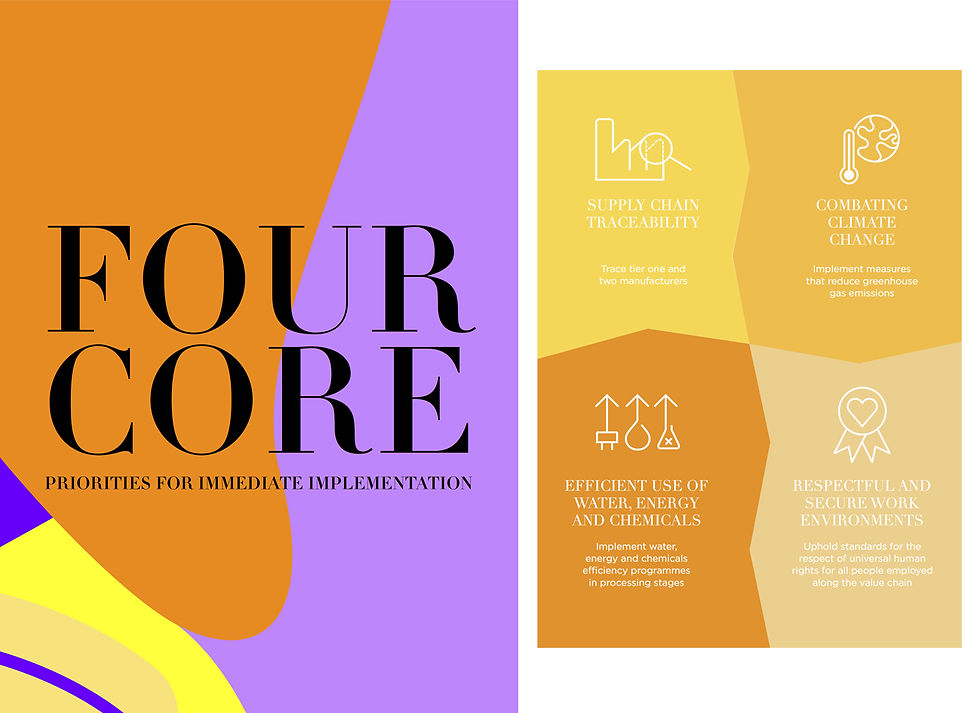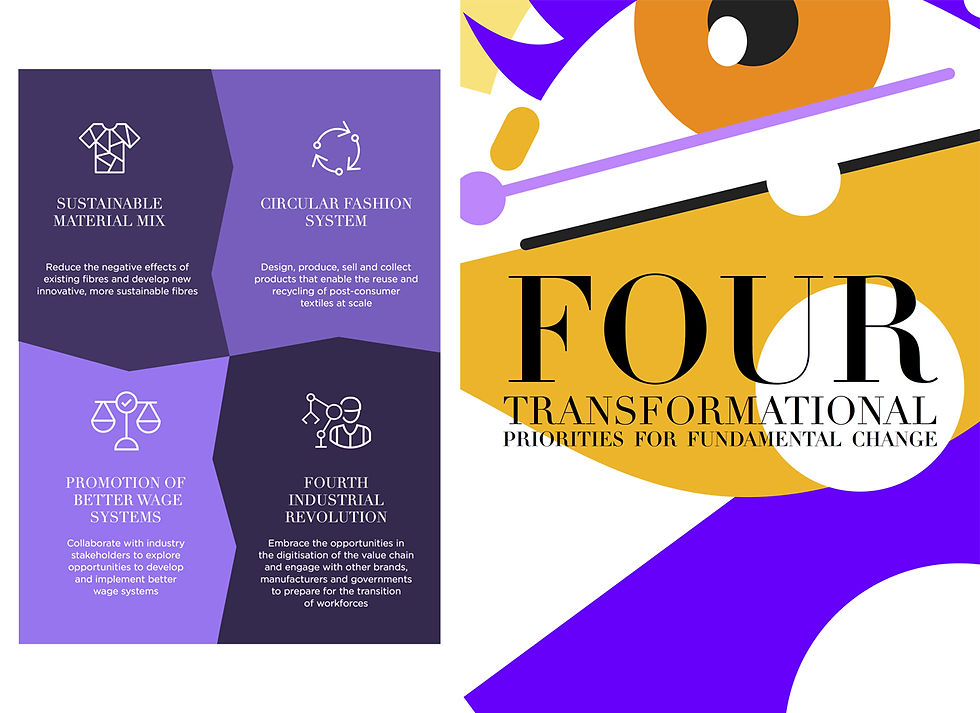Style Ethics: Global Fashion Agenda 2019
- Redazione

- 11 feb 2019
- Tempo di lettura: 3 min

Everyone will be talking about the sustainable fashion’s role at Davos. During the World Economic Forum the key leaders in fashion and associated industries joined forces at the second edition of CEO Agenda, hosted by Global Fashion Agenda, where presenting the eight sustainability priorities every fashion CEO needs to address in order to become more sustainable, the focus point on climate change.
“The fashion industry is going through a transformation that poses many challenges we as an industry need to collaborate on. The transition towards a circular and climate positive business model is key, as is ensuring that the jobs created along our value chains are fair and equal.” – Global Fashion Agenda -

The four core priorities for immediate implementation: supply chain traceability; combating climate change; efficient use of water, energy and chemicals; respectful and secure work environments.

The four transformational priorities for fundamental change: circular fashion system; fourth industrial revolution; sustainable material mix; and promotion of better wage systems.
The Global Fashion Agenda reported the fashion industry has increasingly been working on issues such as water consumption, chemicals, circularity and equality but must also further address its impact on climate change, as a core priority.
The CEO Agenda, developed in collaboration with leading fashion players ASOS, BESTSELLER, H&M group, Kering, Li & Fung, Nike, PVH Corp., Sustainable Apparel Coalition and Target.
“With the addition of ASOS and PVH, our Strategic Partner group has truly come full circle. We are excited to have industry-leading representatives from distinct segments of the fashion industry.” – Eva Kruse, CEO and President, Global Fashion Agenda
Projections from the Pulse of Fashion Industry 2018 report, co-authored by Global Fashion Agenda and The Boston Consulting Group, state that they investing in sustainability, fashion brands will be able to reduce their social and environmental footprint whilst improving their bottom line, with a potential increase in EBIT margins.
“The fashion industry is one of the world’s largest and most powerful industries. Therefore, we need to take leadership to secure the future of our industry – and our planet,” explains Eva Kruse, CEO and President of Global Fashion Agenda.
Although fashion companies started to embrace the importance of sustainability, there is still a long way to go.
An example was the ReMode 2018, during the conference held in Los Angeles the key word was circular fashion system. Brilliant idea, to circulate system resources to make fashion more efficient.
What happens when a girl gets tired of wearing a dress, it happens often?
This is the case of the Swedish group H&M, it is essential for them to address sustainability proactivity. They are dedicated to continuing making great fashion and design affordable, by having a circular approach and being a fair equal company. The next goal of the retailer is for all cotton in our range to come from sustainable sources.
”The fashion industry is going through a transformation that poses many challenges we as an industry need to collaborate on. The transition towards a circular and climate positive business model is key, as is ensuring that the jobs created along our value chains are fair and equal,” added Karl Johan Persson, CEO, H&M group.
Events uniting fashion brand leaders and industry-wide professionals to inspire solutions for growth and innovation with the aim to encourage the exchange of information to increasingly widen the sustainable revolution to the whole world of fashion & luxury. A more eco-friendly approach throughout the supply chain. Designers, emerging brands, influencers and celebrities all speak about sustainable fashion.
“By working together, we believe we can deliver a systemic shift in the way our industry addresses key ethical trade and sustainability challenges and proactively design a future we all believe.” Nick Beighton, CEO, ASOS




Commenti